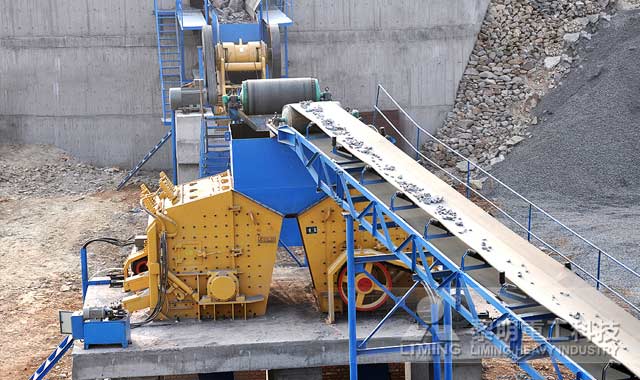Introduction
In the realm of construction and mining, stationary crushers play a crucial role in the aggregate production process. These robust machines are designed to crush large rocks into smaller, more manageable pieces, ensuring the production of high-quality aggregates essential for various construction applications such as concrete, asphalt, and road base. Unlike mobile crushers, stationary crushers are fixed at a single site and are typically more powerful and capable of handling higher capacities.

Types of Stationary Crushers
- Jaw Crushers: Jaw crushers are commonly used for primary crushing operations. They operate by compressing material between a fixed and a moving jaw. This type of crusher is effective for large rocks and produces a relatively uniform output size.
- Impact Crushers: These crushers are used for secondary or tertiary crushing. They use impact rather than pressure to crush materials. An impact crusher can produce more cubical shapes, making it ideal for creating aggregate for road construction.
- Cone Crushers: Cone crushers are suitable for secondary and tertiary crushing stages. They work by squeezing the material between an eccentrically gyrating spindle and a concave hopper. This action results in the material breaking down into smaller, more uniform pieces.
- Vertical Shaft Impact (VSI) Crushers: VSI crushers are specialized machines used for tertiary or quaternary crushing. They employ a high-speed rotor to project material against an anvil or rock shelf, resulting in finely crushed aggregate with a consistent shape.
Benefits of Stationary Crushers
- High Efficiency: Stationary crushers are designed for continuous, high-capacity operations. They can handle large volumes of material, ensuring efficient production rates.
- Durability: Built with robust materials and components, stationary crushers are designed to withstand the rigors of heavy-duty operations. This durability translates to lower maintenance costs and longer operational life.
- Consistency: These crushers provide consistent output sizes, which is crucial for meeting specifications in aggregate production. This consistency helps in maintaining the quality of the final product.
- Customization: Stationary crushers can be customized to meet specific operational needs. This includes adjusting the size and configuration to fit the particular requirements of a project.
Considerations When Choosing a Stationary Crusher
- Material Characteristics: Understanding the properties of the material to be crushed is essential. Factors like hardness, abrasiveness, and moisture content can influence the choice of crusher type.
- Capacity Requirements: The desired production capacity will determine the size and type of crusher needed. It’s important to choose a crusher that can handle the expected volume of material.
- Economic Factors: The initial investment cost, operating costs, and potential return on investment are crucial factors. It’s important to balance the upfront cost with the long-term benefits of the crusher.
Stationary crushers are vital equipment for aggregate production, offering high efficiency, durability, and consistent performance. By carefully considering the type of crusher, material characteristics, capacity requirements, site conditions, and economic factors, one can select the most appropriate stationary crusher to meet the specific needs of an aggregate production operation. This ensures optimized productivity, reduced operational costs, and high-quality aggregate output.

